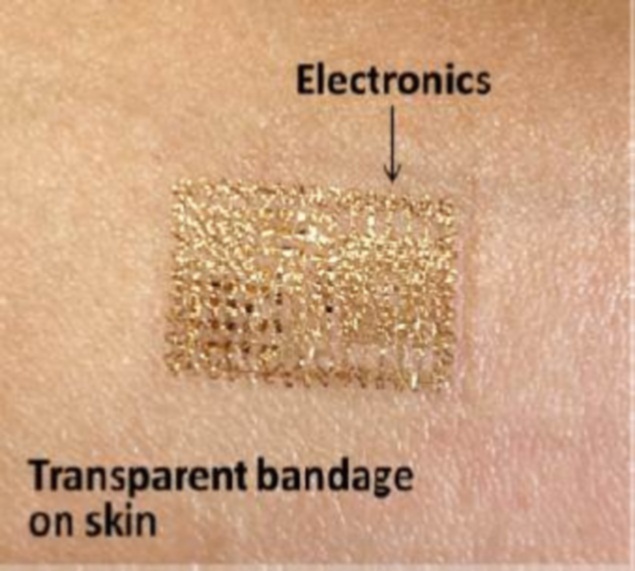- Home
- Others
- Others News
- 'Electronic skin' developed to store information and deliver medicine
'Electronic skin' developed to store information and deliver medicine

The technology could aid patients with movement disorders such as Parkinson's disease or epilepsy, researchers have claimed.
What we are talking here is a "sticky patch containing a device roughly four centimetres long, two cm wide and 0.003 millimetres thick", said Nanshu Lu, a mechanical engineer at University of Texas in Austin.
The researchers constructed the device by layering a package of stretchable nanomaterials - sensors that detect temperature and motion, resistive RAM for data storage, microheaters and drugs - onto a material that mimics the softness and flexibility of the skin.
"The novelty is really in the integration of the memory device," Stephanie Lacour, an engineer at Swiss Federal Institute of Technology in Lausanne, added.
The device works if it is connected to a power supply and data transmitter, both of which need to be made similarly compact and flexible before the prototype can be used routinely in patients.
"Although some commercially available components, such as lithium batteries and radio-frequency identification tags can do this work, they are too rigid for the soft-as-skin brand of electronic device," Lu explained.
The findings were published in the journal Nature Nanotechnology1.
Catch the latest from the Consumer Electronics Show on Gadgets 360, at our CES 2026 hub.
Related Stories
- Samsung Galaxy Unpacked 2025
- ChatGPT
- Redmi Note 14 Pro+
- iPhone 16
- Apple Vision Pro
- Oneplus 12
- OnePlus Nord CE 3 Lite 5G
- iPhone 13
- Xiaomi 14 Pro
- Oppo Find N3
- Tecno Spark Go (2023)
- Realme V30
- Best Phones Under 25000
- Samsung Galaxy S24 Series
- Cryptocurrency
- iQoo 12
- Samsung Galaxy S24 Ultra
- Giottus
- Samsung Galaxy Z Flip 5
- Apple 'Scary Fast'
- Housefull 5
- GoPro Hero 12 Black Review
- Invincible Season 2
- JioGlass
- HD Ready TV
- Laptop Under 50000
- Smartwatch Under 10000
- Latest Mobile Phones
- Compare Phones
- Tecno Spark Go 3
- iQOO Z11 Turbo
- OPPO A6c
- Samsung Galaxy A07 5G
- Vivo Y500i
- OnePlus Turbo 6V
- OnePlus Turbo 6
- Itel Zeno 20 Max
- Lenovo Yoga Slim 7x (2025)
- Lenovo Yoga Slim 7a
- Lenovo Idea Tab Plus
- Realme Pad 3
- Garmin Quatix 8 Pro
- NoiseFit Pro 6R
- Haier H5E Series
- Acerpure Nitro Z Series 100-inch QLED TV
- Asus ROG Ally
- Nintendo Switch Lite
- Haier 1.6 Ton 5 Star Inverter Split AC (HSU19G-MZAID5BN-INV)
- Haier 1.6 Ton 5 Star Inverter Split AC (HSU19G-MZAIM5BN-INV)
-
 Toxic Gas May Have Sparked Life on Earth Through Icy ‘Cobweb’ Crystals
Toxic Gas May Have Sparked Life on Earth Through Icy ‘Cobweb’ Crystals
-
 Is Space Sticky? New Study Challenges Standard Dark Energy Theory
Is Space Sticky? New Study Challenges Standard Dark Energy Theory
-
 Sirai OTT Release: When, Where to Watch the Tamil Courtroom Drama Online
Sirai OTT Release: When, Where to Watch the Tamil Courtroom Drama Online
-
 Wheel of Fortune India OTT Release: When, Where to Watch Akshay Kumar-Hosted Global Game Show
Wheel of Fortune India OTT Release: When, Where to Watch Akshay Kumar-Hosted Global Game Show










